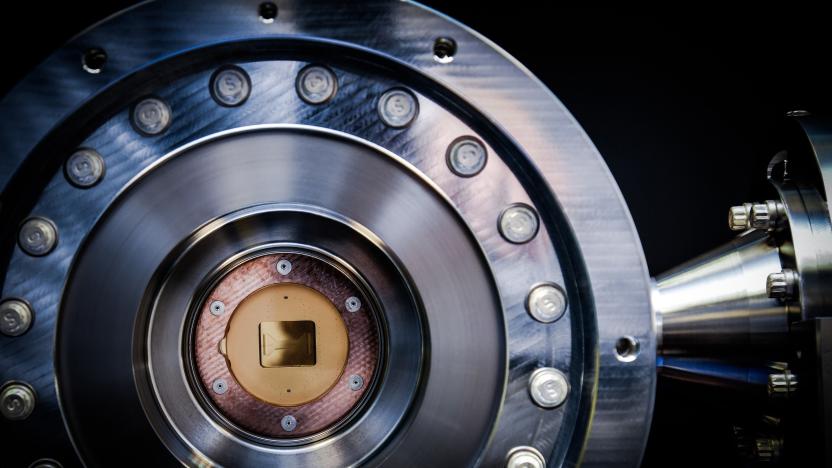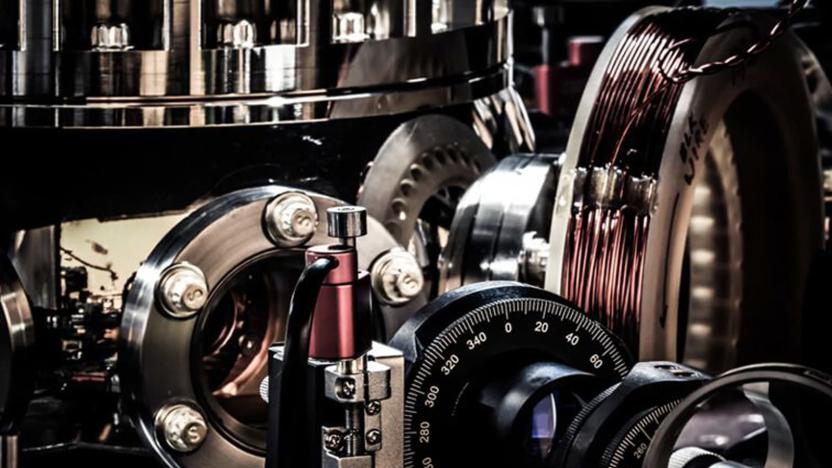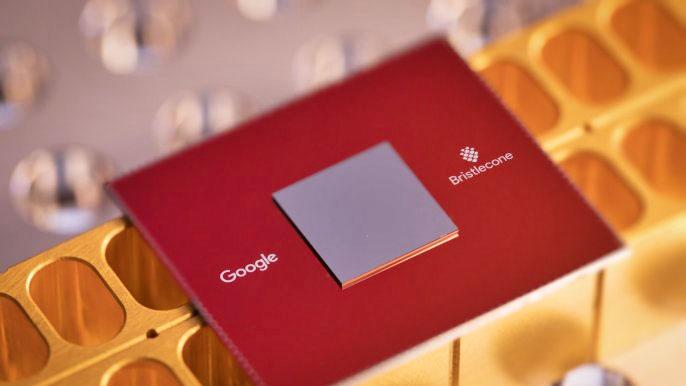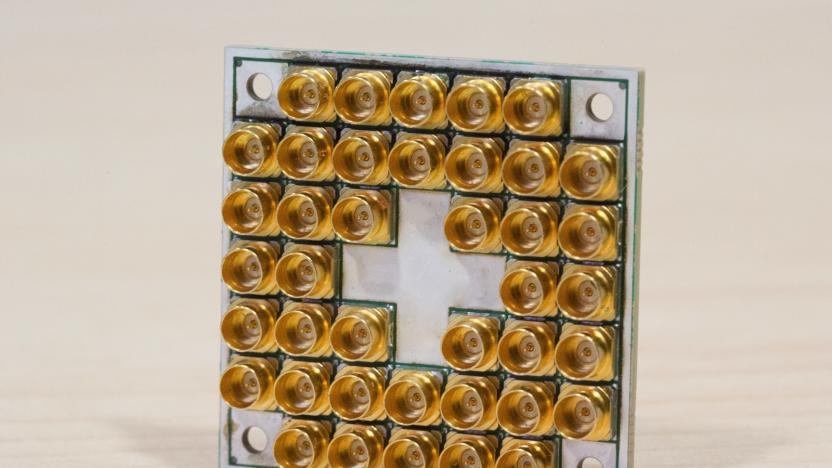qubits
Latest

Honeywell will let other companies tap into its quantum computer
Honeywell's enterprise customers can now access the company's 64 quantum volume computer.

Honeywell says it built the world's most powerful quantum computer
When it comes to quantum computers, we tend to think of companies like Google and IBM as the big players in the field, but there could soon be more competition in the space. Honeywell says sometime in the next three months it will unveil a quantum computer that is at least twice as powerful as any current device.

Google backs its Bristlecone chip to crack quantum computing
Like every other major tech company, Google has designs on being the first to achieve quantum supremacy -- the point where a quantum computer could run particular algorithms faster than a classical computer. Today it's announced that it believes its latest research, Bristlecone, is going to be the processor to help it achieve that. According to the Google Quantum AI Lab, it could provide "a compelling proof-of-principle for building larger scale quantum computers."

Intel created a superconducting test chip for quantum computing
Quantum computing is the next big technological revolution, and it's coming sooner than you might think. IBM unveiled its own quantum processor this past May, scientists have been experimenting with silicon-laced diamonds (and basic silicon, too) as a quantum computing substrate, Google is already looking at cloud-based solutions and Microsoft is already creating a new coding language for the technology. Now Intel has taken another big step towards a quantum computing reality: the company has created a new superconducting chip using advanced material science and manufacturing techniques, and delivered it to Intel's research partner in the Netherlands, QuTech.

D-Wave has its first customer for a $15 million quantum computer
The last time we reported on Canadian quantum computing company D-Wave, it'd extended a contract for its 500-qubit D-Wave Two machine. Now, the firm has announced a major step forward: commercial availability of the D-Wave 2000Q, which it says has 2,000 qubits and costs a whopping $15 million. More than that, D-Wave has its first customer lined up for the pricey machine. "Cutting-edge cyber security firm" Temporal Defense Systems. There, the computer will be used for chipping away at problems that are far more complex and previously thought to be unsolvable.

University of Vienna researchers quantum leap into the cloud, ensure privacy for distributed computing
Afraid of the cloud? You're not alone, as rising concerns surrounding the security of distributed computing have led University of Vienna researchers to seek out quantum mechanics as a privacy fix. The team's findings, soon to be published in the journal Science, prove that an end user's data can remain encrypted throughout its journey to and from remote servers, essentially rendering the quantum computer's calculations as "blind." So, how exactly does this evasive entanglement work? Qubits (or quantum bits) containing the pertinent information are transmitted to a central facility where they're processed according to a specific set of measurements, leaving the resultant computations readable only by the original user. Not obtuse enough for you? Then check out the source below for a more detailed walkthrough.

Scientists manipulate electron, this time everyone wins
Notoriously difficult to pin down, electrons have always been free spirits -- until now that is. According to a paper published by science journal Nature, folk at Cambridge University much cleverer than we have tamed single electrons, succeeding in coaxing them directly from point-to-point. The technique involves creating a small hole in gallium arsenide, called a "quantum dot," then creating a channel of energy higher than the neighboring electrons to shuttle cargo off to another empty "dot." Why should you care? Well, while you might not see this technology in the next smartphone, it should give quantum computing a bit of a nudge forward, smoothing the rate of information transfer. If the concept works out, it'll improve the way qubits move around those sub-atomic circuits, where jumping around like a frog in a sock is generally considered bad form. [Image courtesy of the io9]

Researchers show off scalable architecture for quantum computing, expand our minds
Okay, so we might be chasing the flying unicorn of modern technology here -- and, no, we're not talking about the white iPhone 4 -- but as you've probably noticed, our hunger for a quantum computer is basically insatiable. Lucky for us, some folks who actually know something about producing qubits are similarly persistent -- a team of researchers recently presented a scalable quantum chip at a meeting of the American Physical Society in good old Texas. The 6 x 6-cm processor sports four qubits, the basic units of quantum computing, and its creators say it has the potential to be scaled up to support 10 of the things within the year. So what does that mean for our quest for the ultimate super computer? Well, it means we're closer than we used to be... and the dream lives on.

String theory finds an elegant use for itself with qubit entanglement and black holes
Sure, trying to wrap your head around string theory -- a study in particle physics that's trying to rectify the perceived contradictions between general relativity and quantum mechanics -- can cause more cognitive pain than a colliding god particle. That hasn't stopped anyone from trying to validate its corollaries, and in the interim, researchers like Michael Duff of the Imperial College London. Mr. Duff realized a few years ago there existed some strong relations between formulas pertaining to both black holes (relativity) and four entagled qubits (quantum mechanics). So, in his words, "In a way, there's bad news and good news in our paper. The bad news is, we're not describing the theory of everything. The good news is, we're making a very exact statement which is either right or wrong. There's no in between." We're sure some science cliques are already gearing up to get their troll on. Hit up the PDF below if you want to read it yourself.

Researchers create light-based quantum circuit that does math
It looks like quantum computing could now be one step closer to some form of practicality, as a team of researchers from the University of Queensland have announced that they've created a light-based quantum circuit that's capable of performing basic calculations. According to ZDNET Australia, that was done by using a laser to send "entangled" photons through a linear optical circuit, which allowed them to create a circuit consisting of four "qubits," (or quantum bits, pictured at right), which in turn allowed them to calculate the prime roots of fifteen, three and five. Somewhat interestingly, the university's research is funded in part by none other than DARPA, which the researchers themselves admit may be due to the technology's potential for cracking otherwise uncrackable codes. [Via Slashdot, image courtesy of Wikimedia Commons]







